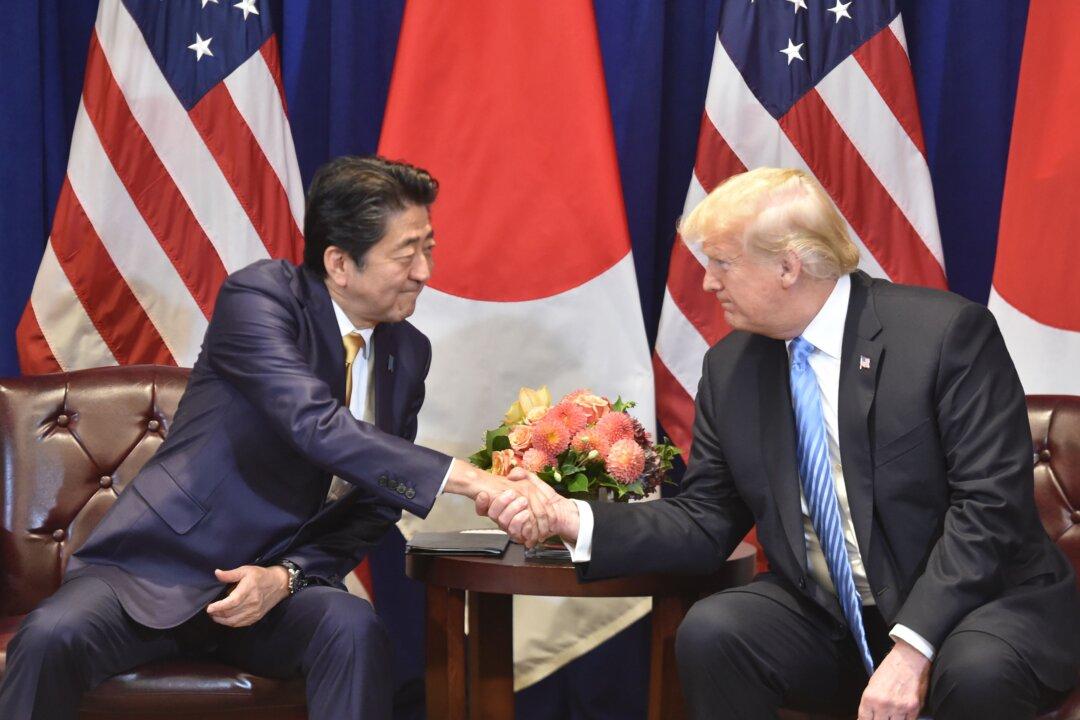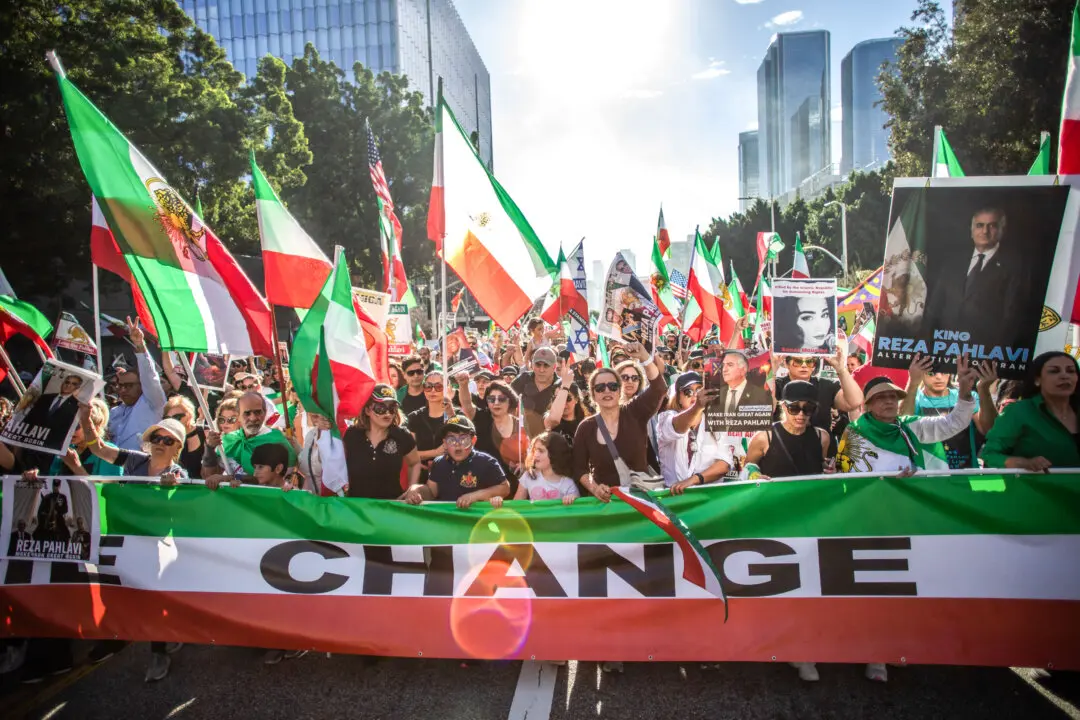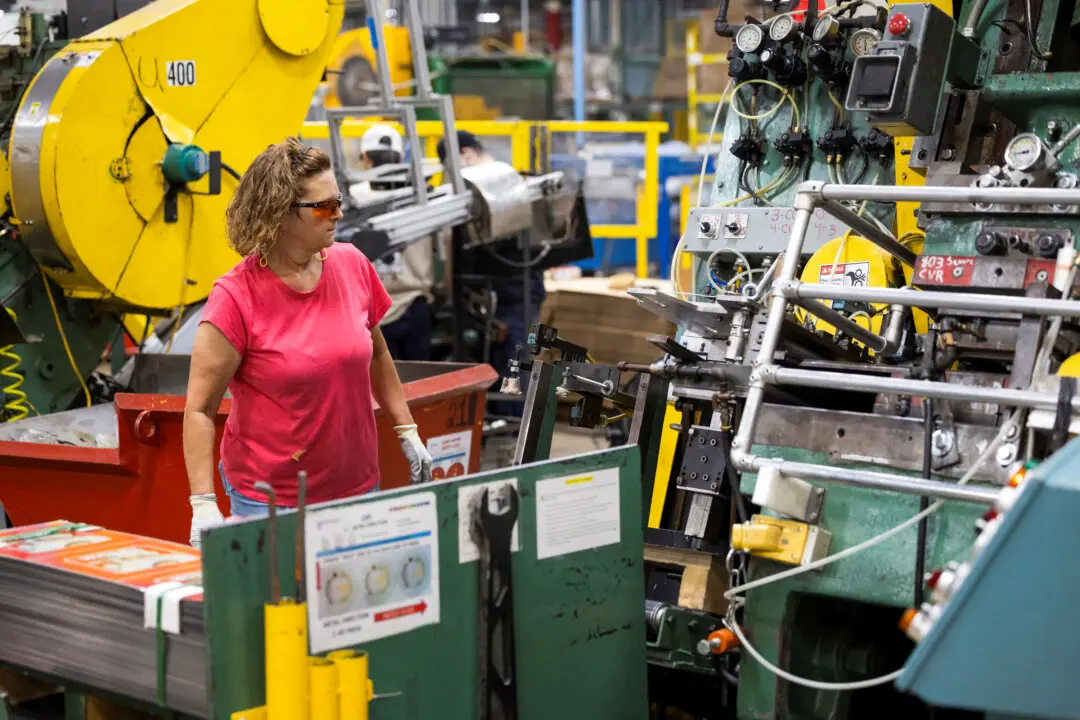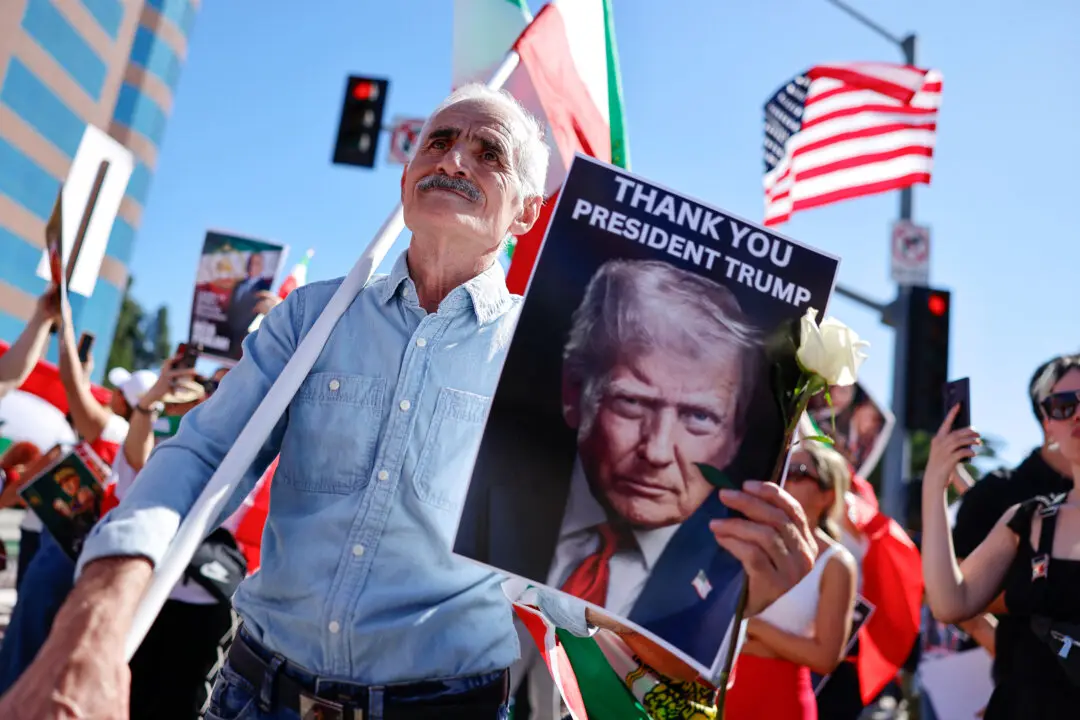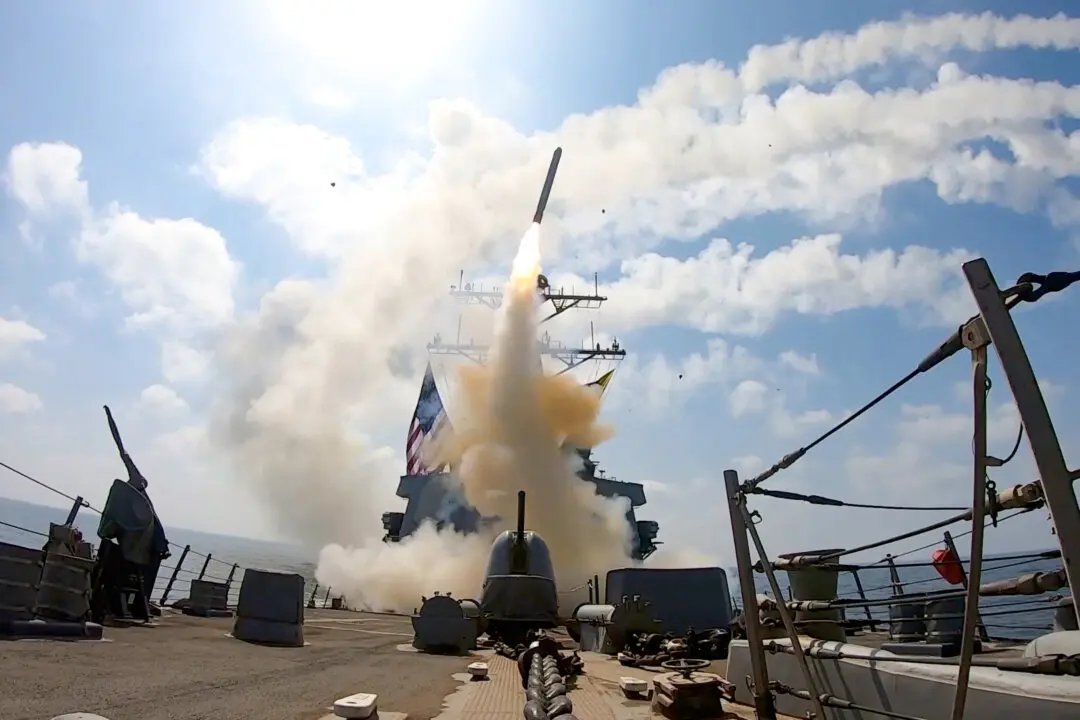President Donald Trump and Japanese Prime Minister Shinzo Abe on Sept. 26 agreed to begin negotiations for a bilateral free-trade agreement, stressing the need for a “strong, stable, and mutually beneficial trade and economic relationship.”
“We’ve agreed today to start trade negotiations between the United States and Japan,” Trump said at a summit with Abe in New York, on the sidelines of the U.N. General Assembly session.
